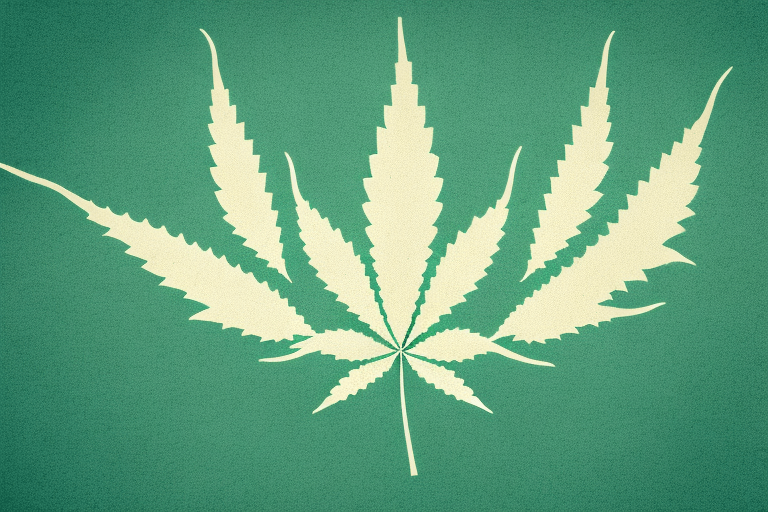Delta 8 has been gaining popularity in the United States for its unique effects and potential benefits. However, the legal status of this cannabinoid varies from state to state. In this article, we will focus on Texas and explore whether delta 8 is legal in the Lone Star State.
Table of Contents
Understanding Delta 8
Before getting into the legalities, let's first understand what exactly delta 8 is. Delta 8 THC, or tetrahydrocannabinol, is a naturally occurring cannabinoid found in the cannabis plant. It is chemically similar to delta 9 THC, the compound responsible for the psychoactive effects of marijuana.
Delta 8 THC is one of the many cannabinoids present in cannabis, but unlike delta 9 THC, which is abundant in marijuana, delta 8 THC is typically found in low concentrations. It can be derived from both hemp and marijuana through various extraction methods.
When it comes to the effects of delta 8 THC, users often describe them as milder and more clear-headed compared to delta 9 THC. This means that delta 8 can provide a similar experience to delta 9 THC but with less intensity and potential anxiety. Many users see it as a middle ground between CBD and delta 9 THC.
What is Delta 8?
Delta 8 is a minor cannabinoid that interacts with the body's endocannabinoid system, producing euphoria and relaxation. It binds to the CB1 receptors in the brain and nervous system, resulting in its psychoactive effects.
The Difference Between Delta 8 and Other Cannabinoids
When comparing delta 8 to other cannabinoids, such as CBD, delta 9 THC, and even delta 10 THC, there are some notable differences.
Firstly, unlike CBD, which is non-intoxicating, delta 8 does produce psychoactive effects. However, these effects are generally considered to be milder compared to delta 9 THC.
Some users prefer delta 8 because it allows them to experience the benefits of THC without feeling overwhelmed or anxious.
Lastly, when it comes to legality and regulation, there is a significant difference between delta 8 and delta 9 THC. While delta 8 is legal at the federal level, delta 9 THC is classified as a Schedule I controlled substance. This means that delta 8 products can be sold and consumed in states where cannabis is legal, while delta 9 THC is heavily regulated and restricted.
In conclusion, delta 8 THC is a minor cannabinoid that offers a milder and more clear-headed experience compared to delta 9 THC. It interacts with the body's endocannabinoid system, producing psychoactive effects that are generally less intense.
The Legal Status of Delta 8 in the United States
Understanding the federal laws surrounding delta 8 is essential before exploring the specific regulations in Texas.
While it is legal at the federal level when derived from hemp, its legality becomes murky when derived from marijuana, which is classified as a Schedule I substance by the federal government.
Federal Laws on Delta 8
Currently, delta 8 THC derived from hemp is legal at the federal level, thanks to the passing of the 2018 Farm Bill.
However, it is worth noting that the legality of delta 8 derived from marijuana remains a gray area due to marijuana's federal classification as a Schedule I substance. While some argue that delta 8 THC derived from marijuana should be legal since it is a different compound with potentially different effects, others believe that it falls under the umbrella of marijuana and should be treated as such.
The federal government has yet to provide clear guidelines on the legality of delta 8 THC derived from marijuana, leaving it up to individual states to determine their own regulations.
While the federal legality of delta 8 THC is clear, the regulations at the state level can significantly impact its availability and use.
State-by-State Regulations
States have the authority to set their own regulations regarding the legality of delta 8 THC. Therefore, the legality of this cannabinoid can vary widely depending on where you are.
Some states have explicitly banned delta 8 THC, citing concerns about its potential health risks and the potential for abuse. These states view delta 8 THC as a loophole that allows people to experience the psychoactive effects of THC without technically consuming marijuana.
On the other hand, several states have embraced delta 8 THC and allowed its sale, possession, and use. These states recognize the potential benefits of delta 8 THC, such as its reported anti-anxiety and pain-relieving properties, and believe that adults should have the freedom to access it legally.
The regulations can range from strict controls and licensing requirements to complete prohibition. Some states require manufacturers and retailers to obtain specific licenses to sell delta 8 THC products, while others have implemented age restrictions to prevent underage consumption.
It is important to note that state regulations can change over time as lawmakers continue to evaluate the legal status and potential risks and benefits of delta 8 THC. Therefore, it is crucial to stay informed about the specific regulations in your state before purchasing or using delta 8 THC products.
The Specifics of Delta 8 Legality in Texas
Now that we have established the general context, let's dive into the specifics of delta 8 legality in Texas.
Texas State Laws on Delta 8
As of now, delta 8 THC is legal in Texas under state law. The Texas Department of State Health Services has not prohibited its sale or possession, allowing individuals to explore the benefits of this cannabinoid.
Under Texas state law, delta 8 THC is classified as a hemp-derived product. Hemp is defined as cannabis containing no more than 0.3% delta 9 THC by dry weight. Since delta 8 THC can be derived from hemp, it falls within the legal boundaries set by the state.
However, it is crucial to note that the legal landscape surrounding delta 8 is continuously evolving, and changes in state regulations are always possible. It is essential for consumers and businesses to stay informed and comply with any new laws or guidelines that may arise.
Recent Changes in Texas Legislation
While delta 8 remains legal in Texas, it is essential to stay updated on any changes in legislation. Recently, the state has shown an increased focus on regulating cannabinoid products.
The Texas Legislature has recognized the growing popularity of delta 8 THC and other hemp-derived compounds. In response, they have taken steps to ensure consumer safety and product quality. This includes implementing stricter testing and labeling requirements for delta 8 products, as well as establishing licensing and registration processes for businesses involved in the production and distribution of these products.
These recent changes in Texas legislation aim to create a more transparent and regulated market for delta 8 THC and other hemp-derived cannabinoids. By implementing these measures, the state aims to protect consumers from potentially harmful or mislabeled products and promote responsible use.
It is advisable to consult legal professionals or check official sources for the most accurate and up-to-date information regarding delta 8 legality in Texas. Staying informed about the latest developments in state regulations will help individuals and businesses navigate the evolving landscape of delta 8 THC in Texas.
The Consequences of Delta 8 Use in Texas
Understanding the legal implications of delta 8 use is vital for both consumers and retailers operating in Texas.
Legal Implications for Consumers
Consumers in Texas can currently purchase and possess delta 8 THC without legal consequences. However, it is essential to adhere to age restrictions and any applicable regulations, as non-compliance may result in legal troubles.
It is also crucial to understand that delta 8 products may still be subject to federal regulations when it comes to shipping and traveling across state lines.
Legal Implications for Retailers
Retailers in Texas must be aware of the restrictions and regulations surrounding delta 8 products. Selling delta 8 to minors or exceeding the allowable delta 9 THC concentration can lead to serious legal ramifications.
By staying informed and compliant with state and federal regulations, retailers can navigate the evolving legal landscape and provide consumers with safe and legal access to delta 8 products.
Future of Delta 8 in Texas
Looking ahead, it is essential to consider potential changes in legislation and the ongoing advocacy and opposition surrounding delta 8 legality.
Potential Changes in Legislation
As the popularity of delta 8 grows, it is possible that Texas, like other states, may reevaluate the legal status of this cannabinoid. Legislative changes could lead to heightened restrictions or even the prohibition of delta 8 THC.
Therefore, staying informed about legislative discussions and actively participating in advocacy efforts can help shape the future of delta 8 in Texas.
Advocacy and Opposition to Delta 8 Legality
The debate surrounding delta 8 legality is ongoing, with both advocates and opponents expressing their viewpoints.
Advocates argue for the potential benefits of delta 8 and the importance of access to alternative cannabinoids. On the other hand, opponents raise concerns about safety, regulation, and the potential for misuse.
Engaging in productive conversations and understanding diverse perspectives can contribute to a well-informed and nuanced approach to delta 8 legality.
In conclusion, delta 8 THC is currently legal in Texas, offering residents an opportunity to explore its effects and potential benefits. However, it is crucial to stay informed about any changes in state regulations and adhere to applicable laws to ensure safe and lawful use. As the legal landscape surrounding delta 8 continues to evolve, consumers and retailers should remain diligent and engaged to navigate the complex world of cannabinoids responsibly.
Discover High-Quality Delta 8 Products at GreenPost
Now that you're informed about the legal landscape of Delta 8 in Texas, you may be interested in exploring quality Delta 8 products. Look no further than GreenPost. We pride ourselves on offering top-notch Delta 8 gummies, oils, flower and more, all sourced from high-quality hemp. Our products undergo stringent testing to ensure purity and potency.




Leave a comment
This site is protected by hCaptcha and the hCaptcha Privacy Policy and Terms of Service apply.